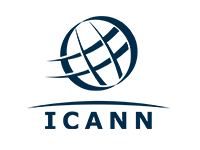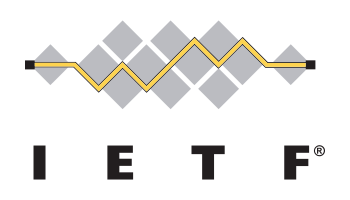Welcome
Welcome to the thirteenth year of CAUCE News. CAUCE was involved in an unprecedented number of important initiatives in 2010, which we would like to take a moment to tell you about.
CAUCE participated in the Digital Phishnet meetings in Montreal, Canada, was represented at the Anti-Phishing Working Group meetings in Dallas, the Team Cymru Cybercrime meetings in Lyon, France, attended all meetings of the Messaging Anti-abuse Working Group, was present at Toronto's ARIN (American Registry for Internet Numbers) meeting, several IETF (Internet Engineering Task Force) meetings, and countless hours advocating for the passage of Canada's Anti-spam Law, C-28, now known as CASL.
CAUCE was instrumental in the development by the U.S. FCC's Communications Security, Reliability and Interoperability Council (CSRIC) its ISP Network Protect BCP document, providing substantial input to the final product.
We thank all our CAUCE supporting and organizational members, whose yearly membership fees allow CAUCE to function, to attend these conferences, and to advocate on behalf of computer users who want to see the fight against malicious online abuse come to a succesful end. All CAUCE directors and officers are volunteers who give generously of their time.
Facts and Tips for Consumers about the Epsilon Breach
Epsilon Interactive, who sends commercial email on behalf of hundreds of companies, admitted to a security breach that they detected some time in March. Journalists covering the story have collected notifications sent by about 70 companies, including many financial institutions.
If you received a notification from one of Epsilon's clients, the thieves know your name and email address. Depending on which company had your information, the thieves may also be know the hotels you may stay at, which credit cards you may use, or where you buy stuff online. If your email address shows up on several of these lists, the criminals can draw together a pretty accurate profile of who you are, and what you typically do, and can guess your income level. Ironically, that is what companies like Epsilon do with the data, too.
There has been a lot of talk, blogging, tweeting and press reportage about the Epsilon breach, but little in the way of concrete information to consumers as to where they stand, if their personal information (PII) such as their name and email address has been lost to criminals. The CAUCE Board of Directors have developed the following FAQ that provides facts and guidance for those affected by the breach
Impenetrable Processes and Fool's Gold at ICANN
By: J.D. Falk, Director-at-large
A couple of weeks ago, I attended part of the ICANN meeting in San Francisco. I've been watching ICANN and been peripherally aware of their issues since the organization began, but this was my first chance to attend a meeting.
What I learned is that ICANN is a crazy behemoth of a bureaucracy, steeped in impenetrable acronyms and processes that make it nearly impossible for someone new to get up to speed.
The best example of this is the recent approval of the .XXX top-level domain. There are already top-level domains for specific types of companies or organizations: .MUSEUM for museums, .COOP for co-ops. None of them have been very successful ? there are only a few hundred museums in .MUSEUM and 6000 co-ops in .COOP ? but they've been mostly harmless. So okay, the adult entertainment industry wants a top-level domain, why not let them have it?
C-28 Anti-Spam Law Receives Royal Assent
By: Shaun Brown, Counsel & Director-at-large
It's been a long time coming, but Canada finally has an anti-spam law. Bill C-28, the law with no name, was passed in December, 2010
First introduced in April 2009 as C-27, the Electronic Commerce Protection Act, it died when parliament was prorogued in December 2009, only to be resurrected in May of 2010.
Having been involved since the beginning, and eagerly awaiting its passage, CAUCE is excited and relieved to see Bill C-28 become law; it provides Canada with the tools to do its part in the global fight against spam and related threats.
Yes, People Still Care About Email Spam
Just over a month ago, we posted an article entitled "Do People Still Care About Email Spam Anymore?". Part of the reason why people might not care anymore, according to this article, is that email has become pass?. With so many other new ways to communicate, why even bother with email?
Not only did a few readers take the time to post some compelling counter-arguments to our article, even muckraking marketing columnist Ken Magill has weighed in on the debate. Citing a few recent studies ? including a finding by the Pew Internet & American Life Project that email is still the No. 1 online activity across all age groups of internet users ? Magill goes so far as to advocate a pretty hefty dose of harassment for the next person who states in public that email is dead.
According to The Radicati Group, there are currently 1.4 billion email users. A study by Nielsen found that 25 minutes out of every hour spent on a mobile device is on email. And so on.
Consider supporting CAUCE by becoming a free or supporting individual Member or an organizational Sponsor: Join Here. Organizations can support CAUCE at several levels, starting at $5,000 per year. Sponsors may enjoy a range of benefits, including logo placement and recognition in our periodic newsletter. Please contact us via e-mail at support@cauce.org for additional information.
We encourage redistribution of this message, as long as they are not spammed anywhere, are on-topic for any forum to which you send them, and include our copyright notice. When in doubt, post the URL of our site (http://www.cauce.org) instead, or put it in your signature. Press, broadcast, and Internet media may treat this material as they would a press release.

















